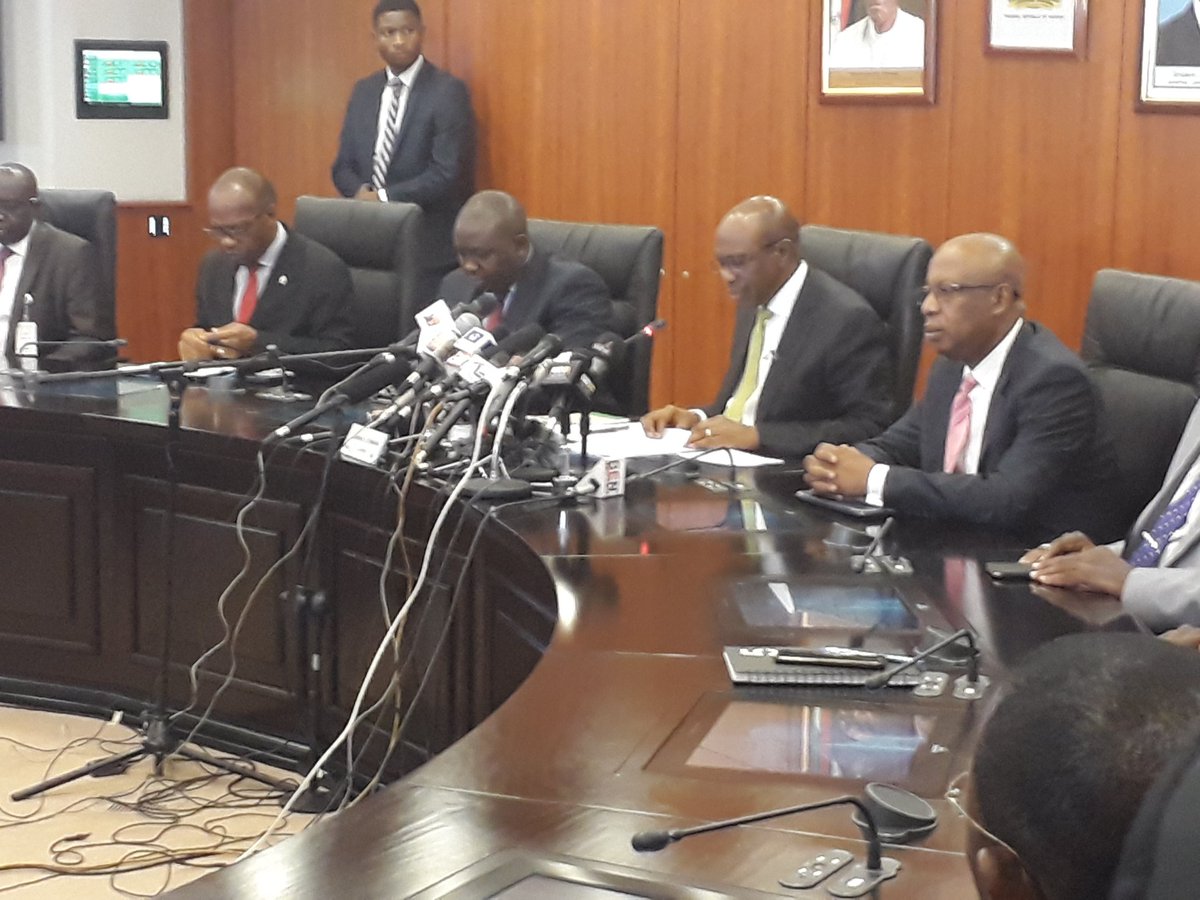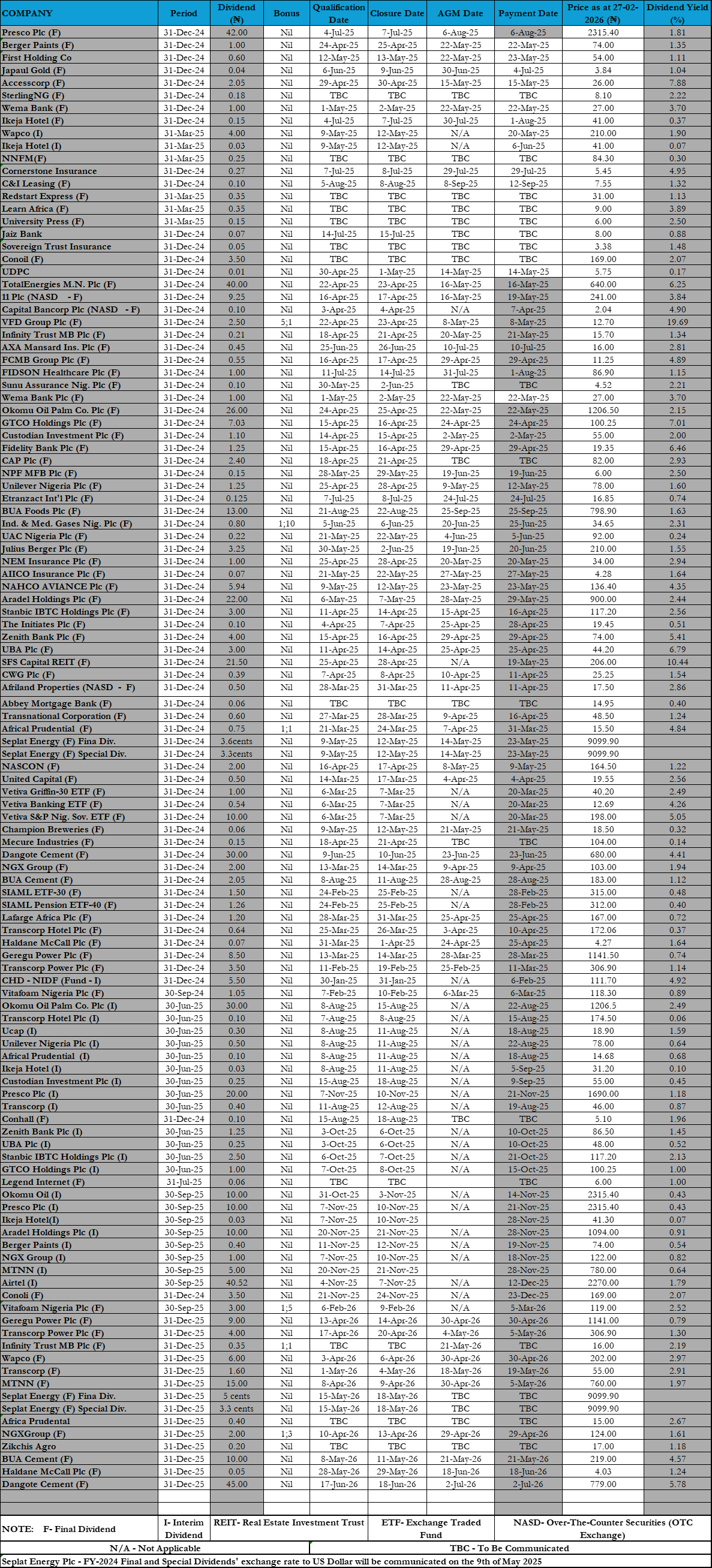
• Seek Reduction In Inflation
• Member Says Toxic Bank Loans Now Alarming
Members of the Central Bank of Nigeria (CBN) Monetary Policy Committee (MPC) want the Federal Government to check the rising deficit level in the nation’s annual budget now at N1.7tr or 20% of the N8.6tr 2018 budget, as well as the 15.5% public debt to GDP level, warning that it is not sustainable.
According to the personal comments at the November MPC meeting released by the CBN at the weekend, members also warned of the inflationary implication, this year, ahead of the coming general elections from February 2019, urging the apex bank to adopt proactive measures to check the negative impact of such.
On his part, the CBN Governor, Godwin Emefiele, described the inflation rate now at 15.9% as unacceptable and inhibitive, processing that the apex bank “will continue its interventions in critical sectors of the economy so as to support the government’s efforts at bolstering domestic productivity.”
He re-emphasised the need to sustain the pace of capital projects in order to reduce infrastructural deficits, boost output and moderate prices, just as he noted that judicious implementation of the the 2018 budget and “the proposed capital expenditure therein will have a significant push effect on the real economy.”
Adebayo Adelabu, Deputy Governor of the CBN and member of the committee Adebayo Adelabu, Deputy Governor of the CBN and member of the committee, lamenting the consistent rise in public debt to GDP since 2012.
He spoke for efforts to raise revenues particularly from non-commodity sources while simultaneously reducing recurrent expenditures.
Suleiman Barau, another deputy governor of the CBN, who retired in December, expressed worry over the size of the 2018 budget deficit, describing it as “very big,” as well as the low capital vote, just as the impact of electoral spending ahead of the 2019 elections on inflation
He however noted that the deficit level fell to 1.77% of GDP from 2.14% in 2017, to be financed 50:50 from domestic and external sources, either of which “has severe implication for macroeconomic management. However, even as the absolute level of deficit in the 2018 budget may appear to be high, this can be justified in the context of the increase in capital allocation and the tendencies to externalize the financing of the deficits will help address the monetary policy implications of the budget and indeed improve current debt service challenges.”
Barau also noted the tendency of the delayed passage of the budget to stifle the economic recovery process, calling on the executive and National Assembly to fast-track the budget process, even as he agreeing that the oncoming electoral spending could take its toll on the recovery process, which could pile pressure on inflation.
At 15.91%, Barau said inflation is still high, warning that “stability in the foreign exchange market could be threatened in the event of increase in interest rate by the Federal Reserve of the US. Given that the risk of vulnerability is not sufficiently strong to justify increase in the policy rate, the stability in macro indicators is equally not sufficiently robust to warrant monetary easing.
Prof. Dahiru Balami of the Economics Department, University of Maiduguri, another member of the committee, noted the need to promote growth by stimulating the economy, employing appropriate monetary and fiscal policy tools to aid diversification. One way of achieving this, he said is by sustaining the ban on the 41 commodities which can be produced in Nigeria from the interbank foreign exchange window.
He also noted the drop in inflation, even if not yet at the desired level, just as he noted the need for more efforts to ensure that GDP grows faster than population.
One critical question begging for answer, he says, is: “how do we reduce inflation and interest rate charged by the DMBs and how do we encourage banks to lend to the real sectors of the economy”? Interest rate should come down but at what point will it be appropriate to lower interest? What can also be done to reduce the high level of unemployment in the economy?
“The overall assessment is that most of the variables such as inflation, growth of GDP, and stability in the foreign exchange market have attained some level of improvement.”
On his part, another member, Prof. Chibuike Uche of the Department of Banking and Finance, University of Nigeria, Enugu Campus, a chairholder of the Stephen Ellis Chair for the Governance of Finance and Integrity in Africa, also expressed displeasure at Nigeria’s double-digit inflation, which is still above Monetary Policy Rate (MPR), and rate of borrowing, predicting economic doom ahead, if cost of capital continues to dwarf returns on investment.
He warned the CBN management not to destroy the institution and resist the temptation to become the Federal Government’s Santa Claus. Falling into such temptation, he further warned, could destroy the institution’s balance sheet of the CBN and complicate its monetary policy management function.
“I am particularly disturbed by the recklessness with which the Federal Government has been borrowing, both internationally and locally. It is obvious to me that very little consideration has been given to how these loans would be repaid in the future. With the medium to long term expectation that oil will become less important in the global economy, it is nothing more than wishful thinking to expect that these new loans will be repaid from oil cash flows in the future.
“The absence of a clear and robust economic plan and/ or strategy on the part of the Federal Government has continued to impact negatively on the monetary policy terrain in the country. The ability of the CBN to ensure monetary and price stability has been greatly impeded under the above circumstances. I am of course aware that our national reserves have been inching upwards for some time now. I am however not convinced by the argument that the rising reserves is evidence of good monetary policy management by the CBN.
“This is because I have consistently argued that allowing short term portfolio inflows into the country and then using such proceeds to fund imports and consumption makes little sense.
“All that such a policy can do is help to temporarily sustain the foreign exchange cash flow of the country while driving it deeper into international debt,” he added, stressing that such is not sustainable because of the absolute “certainty that the bubble will burst.”
Although such temporary inflows could help sustain the value of the Naira, he warned that such relief would only be temporary, adding that permanent relief would only come from expanding the underlying economy and exports.
“Unfortunately, this has been hampered in Nigeria by poor infrastructure and poor governance…
“It, for instance, makes no sense for the CBN to create liquidity problems (by printing and spending huge amounts money on behalf of government) and then go ahead to spend equally huge amounts of money trying to solve the problem it created (mopping up the liquidity),” lamenting the poor economic policy choices of government, which are not only endangering businesses, but endangering the nation’s financial system.
“I find it very troubling that less than a decade after Nigeria emerged from one of the worst financial crisis in its history, it is gradually inching towards another one. This is even more so given the fact that the massive financial hole created in the attempt to address the last crisis (AMCON) is yet to be meaningfully resolved. It is instructive that the current aggregate bad debt levels of Nigerian banks are now in double digit territory and still rising.”
For Shehu Yahaya, also member, chairman of the Development Bank of Nigeria and former executive director of the African Development Bank (AfDB), was also worried about the rising external borrowings, in view of the effect of possible increases in global interest rates and pressures on the Naira exchange rate, which he said, “calls for greater caution.”
On the low tax-to-GDP ratio, he stressed the need to significantly grow the nation’s tax revenue, without which “debt service may undermine the capacity to finance capital expenditure.”
He also expressed belief that the scope for substantially expanding domestic revenue mobilization has not been exhausted, expressing seeming satisfaction for various policies aimed at extending the tax net, expressing hope “that theses will yield better results in 2018.”
Yayaha called for a careful review of government’s penchant for financing deficits by selling public assets, since “there are options that may yield a more regular revenue stream and avoid some of the political economy risks of outright sales (including worsening income distribution).”
Such options could include raising financing through securitization and collateralisation of the appropriate assets.
He agreed with the need to grow government revenue to galvanise the fiscal impetus to growth, applauding the increased government focus on capital expenditure, calling for more creativity to effectively fund the growth-enhancing programmes.
“In general, therefore, there is still much to be done to sustain many of the policy initiatives and to embark on additional ones in order to maintain the recovery impetus and to raise the GDP growth rate above the population growth rate and to achieve the goals of restructuring the economy, he stressed.












